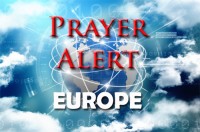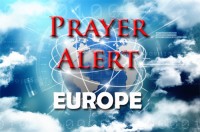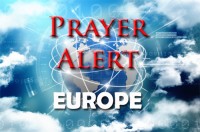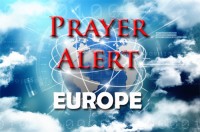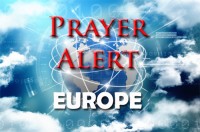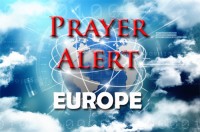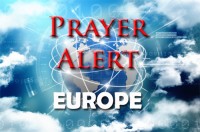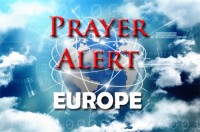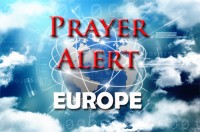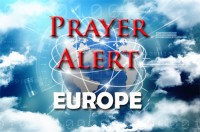France: Migrant crisis 'at new high’
Aid agencies have warned that the problem of migrants camping out in Calais before trying to reach Britain has risen to a level of crisis not seen before.Their numbers in the French port have swollen from around 1,000 in April to 3,000 this month, and it is predicted that up to 4,000 more will arrive in the coming weeks. Aid workers warn that some of the sprawling makeshift campsites, known locally as the Jungle, have become so large as to be untenable. Dozens of migrants have occupied derelict barns and erected tarpaulin-covered wood structures big enough for families, as many wait to try their luck at hiding on lorries to Dover. Maya Konforti, a volunteer for l’Auberge des Migrants, an aid group based in Calais, said the number of migrants arriving was ‘definitely climbing’. She said, ‘The situation is catastrophic. They don’t have enough tents, blankets or food and with Ramadan it’s more difficult.’ She urged Britain to ease the burden on France.
Finland: Europe’s other sick man
Erkki Liikanen, Finland's central bank governor, says the country will need stamina if it is to dig its way out of its ‘grave’ situation. At 64, the governor of Finland's central bank has faced a few challenges in his lifetime: first as finance minister in the years before the collapse of the Soviet Union, one of Finland's key export markets, and in his current job, where he has seen the economy go from leader to laggard in a decade. Finland is in trouble, and in the words of the central bank this week,(20 June )the situation is grave. While France has often been branded Europe's sick man and Greece's problems are well known, Finland's economy is still 5% smaller than before the financial crisis. The country will barely crawl out of a three-year recession this year, while unemployment is forecast by the OECD to grow in 2015. Faced with a bloated state, below-par growth, and prices and costs that have risen at a much faster pace than the rest of the eurozone, the medicine is a familiar one.
Faroe Islands:
The Faroe Islands were inhabited in the sixth century by Irish monks and religion plays an important role in society with 80% of the population belonging to the Evangelical Lutheran Church. The country is self-governing under the Danish crown and the Constitution provides for complete freedom of religion. The fishing industry is the main sector contributing to the Faroese economy. Due to price swings in this branch, the Faroese economy is vulnerable. The Faroese practice of whaling has drawn international criticism. (See previous Faroe Islands article) Denmark contributes about 15% of the Faroese GDP, allowing the Faroese population to have a standard of living almost equal to that of the Danes and other Scandinavians. The Islands have a firm fisheries and free trade agreement with the European Union. At present the Faroese government is assessing the possibility of widening the scope of co-operation to the so-called four freedoms – the free movement of goods, services, capital and persons. They are also participating in EU's research cooperation programme (FP7). See also: www.framtak.com/eysturoy/places/churches.html
Estonia: The least religious country in the world?
Not so long ago Estonians were asked whether religion played an important part in their life - only 20% said yes. It suggests that the Baltic country is, statistically, the least religious country in the world. At Tallinn’s large Lutheran Dome Church one Sunday 70 congregants were tourists and 15 were regular Estonian church-goers. Although the Lutheran Church is the largest in Estonia, it accounts for only 13% of the population. Fewer than one in five Estonians say any religion plays any part in their lives. In schools religion is not on the curriculum. This does not mean Estonians do not believe in anything at all. Many are nature worshippers, pagans, who define their religion as Maausk - a form of Estonian nature spirituality - in which the trees and earth are cherished objects that possess power. There are eight unreached people groups in Estonia and three of the main religions are Islam, Ethnic and Hinduism.
See also : www.bbc.co.uk/news/world-europe-14635021

